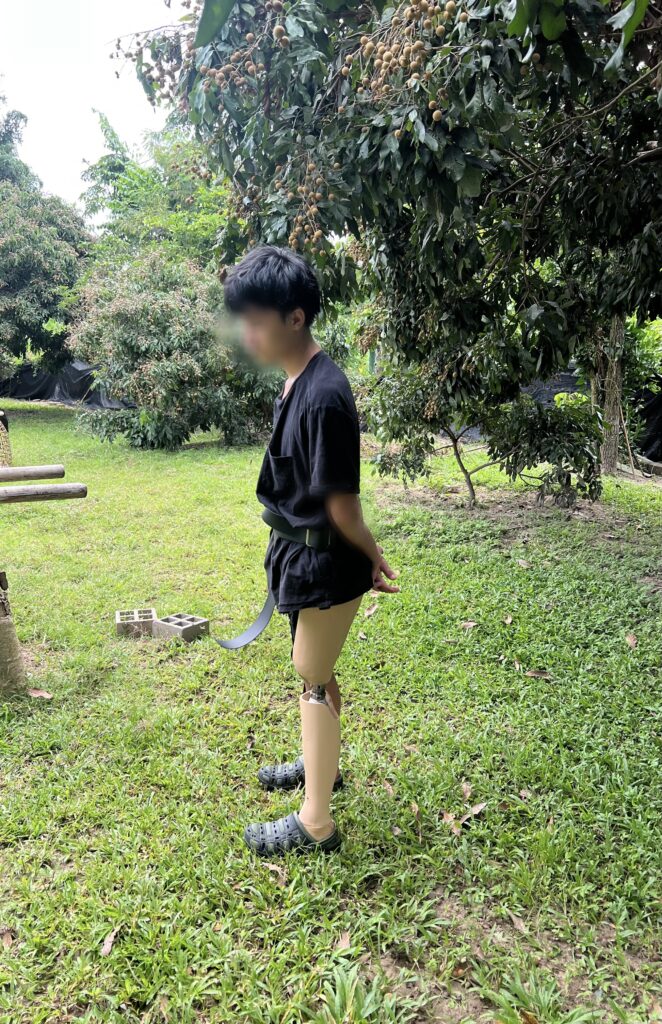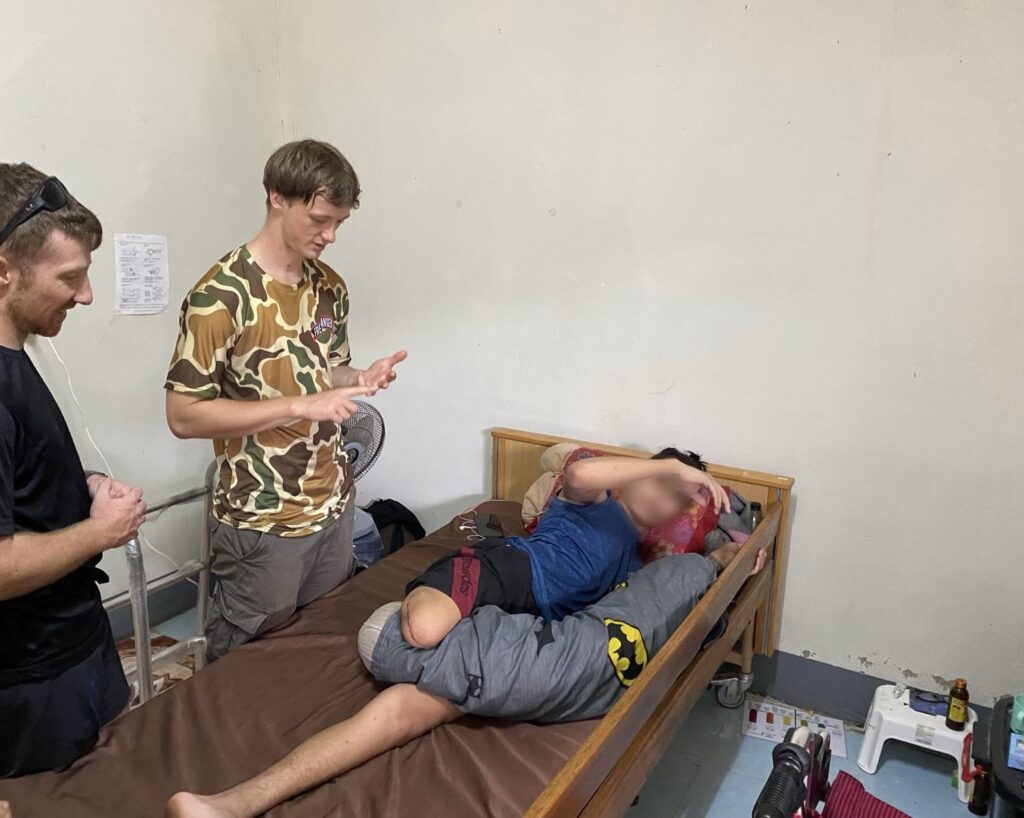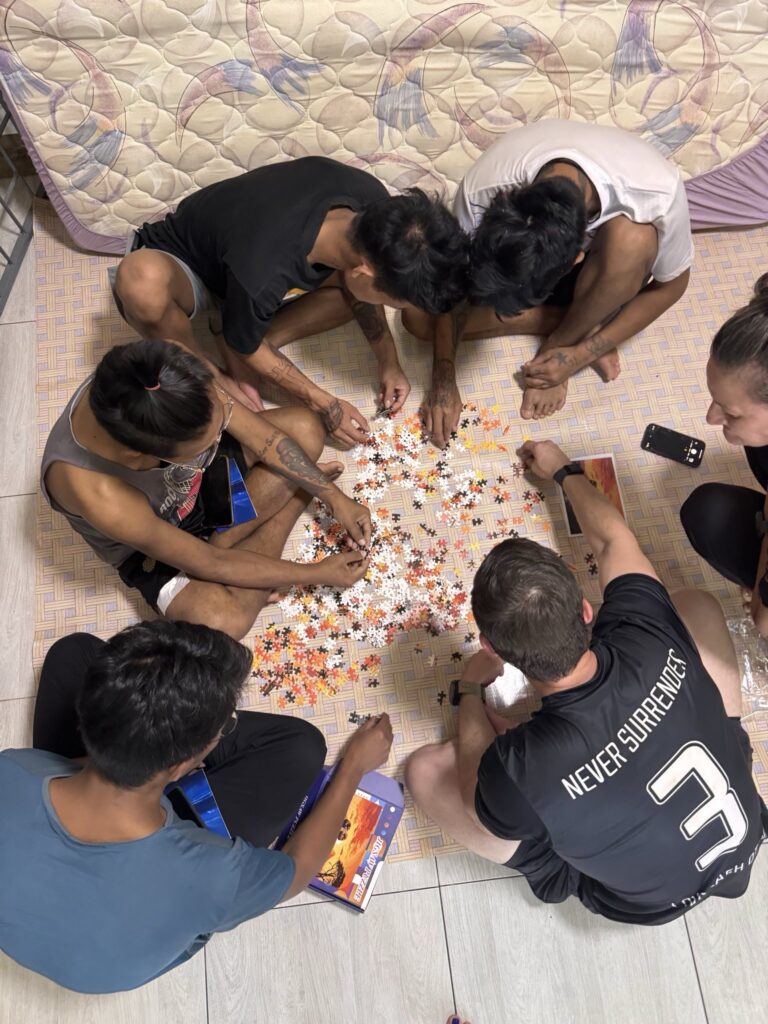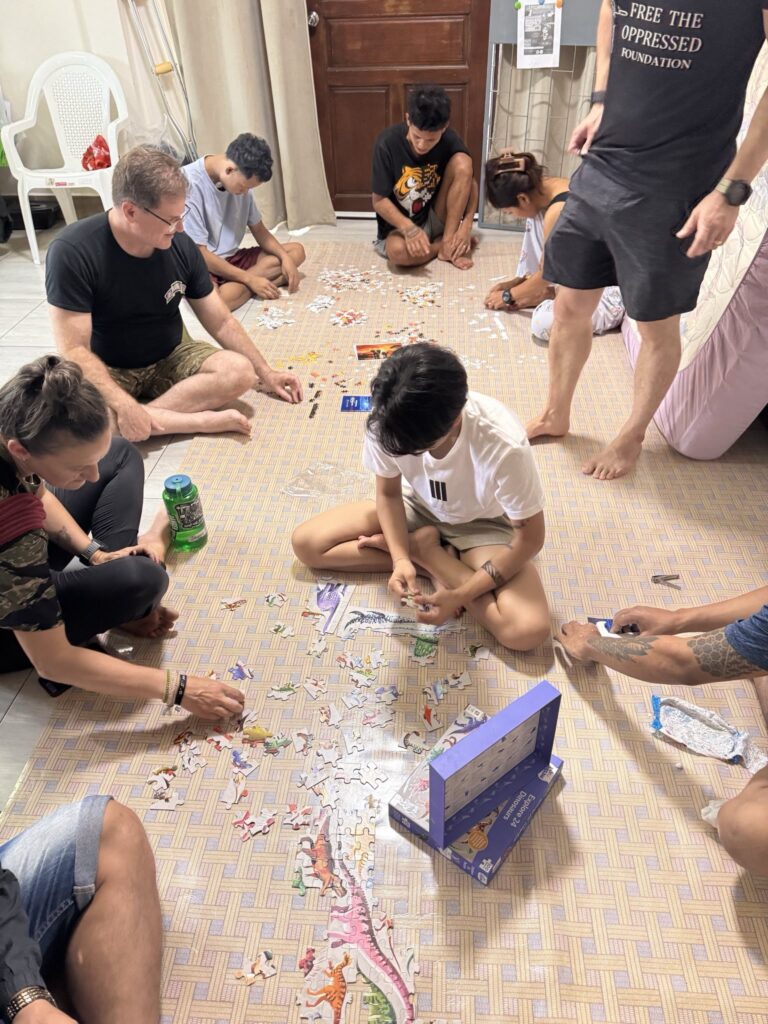Strength Through Friendship
3 July 2025
As our truck pulled up to a house on a dirt road, we saw a group of young men cheering on one of their own as he attempted to walk with a new, artificial leg. Their joy and encouragement was a display of friendship designed by God.
The Free Burma Rangers (FBR) often work in conjunction with local ethnic pro-democracy forces, like the Karenni Nationalities Defense Force (KNDF) through highly mobile, multipurpose relief teams. FBR team members operate oftentimes with security provided by the ethnic resistance armies, and also provide assistance, such as emergency medical care, to those who are wounded in battle.
If these soldiers suffer serious injuries during combat in Burma, are tended to quickly enough with emergency medical care in the field, and survive, they begin what can be a strenuous recovery journey. Sometimes they are able to receive the necessary care locally, but often they must go outside of the country, to more stable areas with more definitive care, to receive essential, long-term medical care.
One of those locations is a safehouse where patients are tended to by FBR team members, physical therapists, and medics. This is a safe place that allows for not only physical healing and therapy, but also emotional and spiritual healing as well.
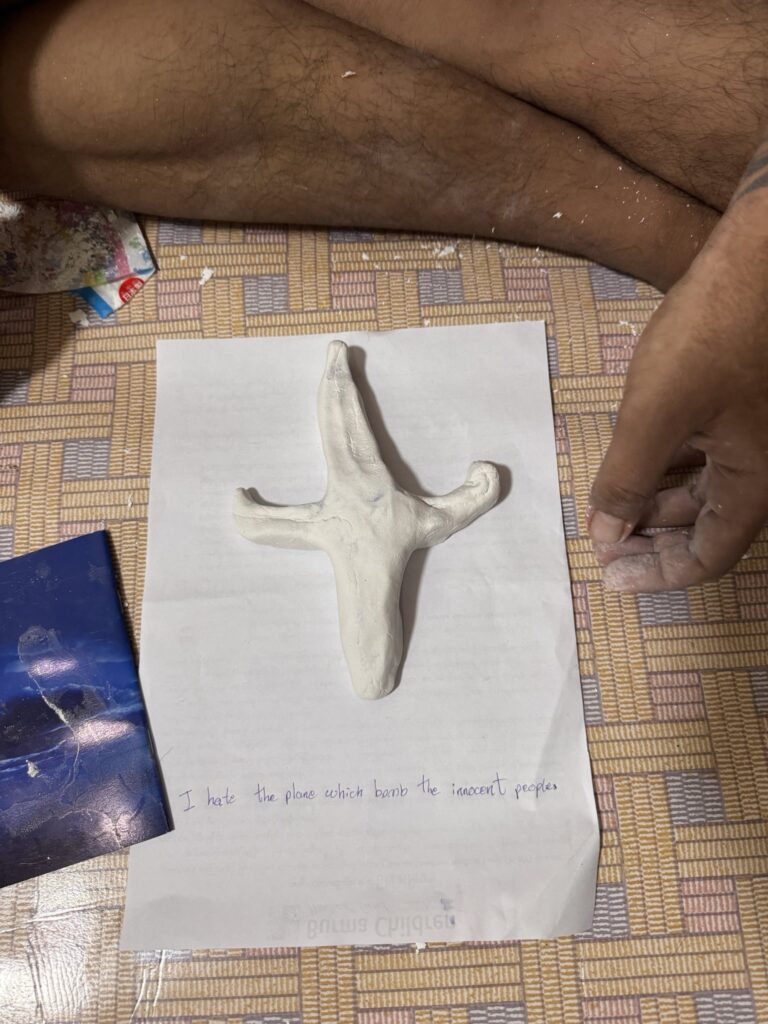
The majority of patients at this location have been visibly injured, from gunshots, RPG fire, drone fire, or landmine explosions. One of those is 19-year-old Bah Soe, who was struck by a gunfire twice in the left hip. “I got shot by the Burma military…two times,” he explained.
Bah Soe described what went through his mind after he was shot. “I’m going to die,” he thought to himself in that moment. “It was painful.”
Bah Soe was only 17 years old when he joined the KNDF in Karenni State, Burma. “I join the army because I want to be a soldier. I just want to join army…so I went.” He added that he loves his family and felt that he needed to serve and protect them.
When we met him, he’d been at this location receiving treatment for roughly one month after getting injured in June. “After surgery, I feel like it’s still pain. It’s hard for me to walk and to sleep.”
Bah Soe’s story was similar to that of 27-year-old Loo Eh Say, who joined KNPDP, an ally to the KNDF, two years ago. “We are fighting because we want freedom. Because the Burma military try to come and take over, and they want to control that…We want to fight for freedom. That is important for all of people because we love freedom.”
Loo Eh Say was hit by shrapnel from an RPG in nine separate locations on his body. “We fight and I got injury in my leg. That’s why I come here, because … we don’t have a hospital or medical for the treatment,” he said. “I am here about one month. But I don’t know how long I will stay here because it’s dependent upon the appointment. Once I recover very well I will return.”
Those two cases were different from another patient named Oasih, who had no obvious injuries. “My kidney is not good,” he explained, as he pulled out pills to showcase the amount of prescribed medication required for treatment. “So it might be failing. I take medicine.”
Oasih has been a patient for at least four months, with no planned return date in sight. He began experiencing kidney issues after spending roughly four years in combat for KNDF. “The food is salty and spicy. Sometime the drink, we have to drink what we have. So yeah, that is why I have a bad kidney.” As one of four children, Oasih missed home, and missed his father, who died from a gastrointestinal disease. “My father died in 2022,” he said. “He was sick with stomach problems.”
Despite their differences in reason for being there, each of these patients shared something in common: a need for hope and healing. With soft smiles, each patient confessed, “We’re sad because we can’t help our families or villages when we hear bad news.” Their pain is real, but so is their faith.
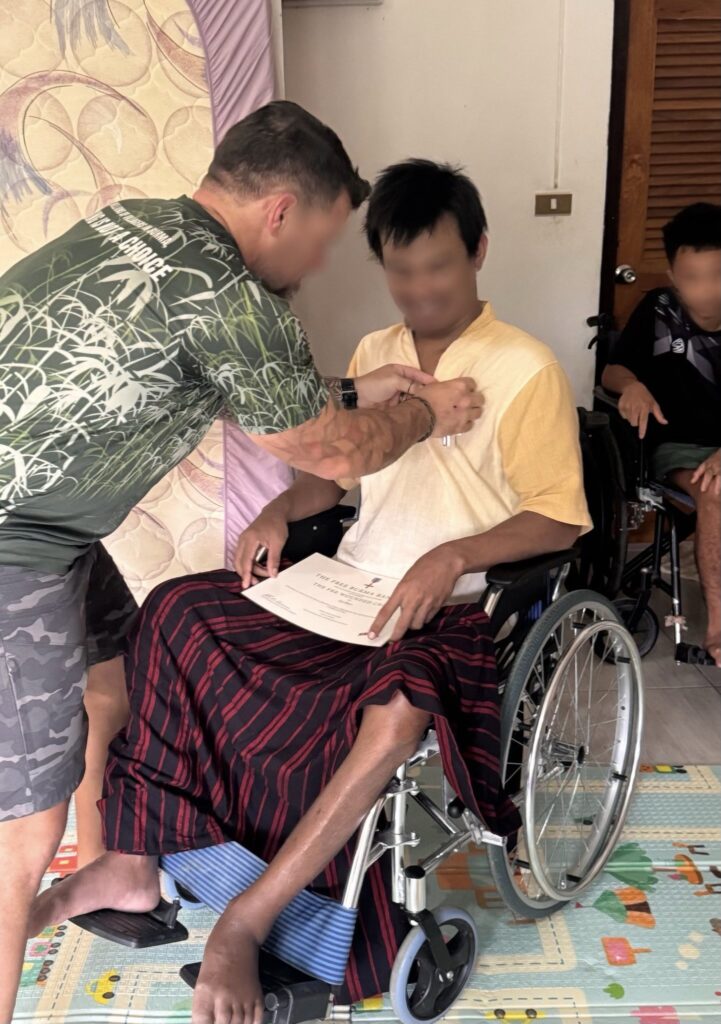
Each week, a chaplain visits the house to share a devotional, followed by options for physical therapy, crafts, painting, games, and breathing exercises. These simple sessions bring moments of joy and comfort.
One FBR staff member who is from Burma was asked to visit the patient house to translate for a physical therapist during a session. She saw the pain and heartache of each patient, but was simultaneously encouraged by their faith and all God was doing there. She began visiting weekly, sometimes more than once. She was a ray of light who could relate to their stories because of her similar background in Burma.
“One of the most meaningful times is our weekly ‘heart-to-heart,’ where soldiers reflect on their emotional highs and lows,” she said. “During one session, a blind soldier shared, ‘I’ve been blind for almost a year, but I’m happy for everyone here, and thank God for keeping me safe.’ Another asked, ‘When can I get a prosthetic leg?’ Their words moved us deeply.”
“We see God strengthening them mentally, emotionally, and spiritually,” she added. “One soldier with a severe head injury, and once paralyzed, now walks again. Another who lost an eye because of mortar fire, still praises God for his life.”
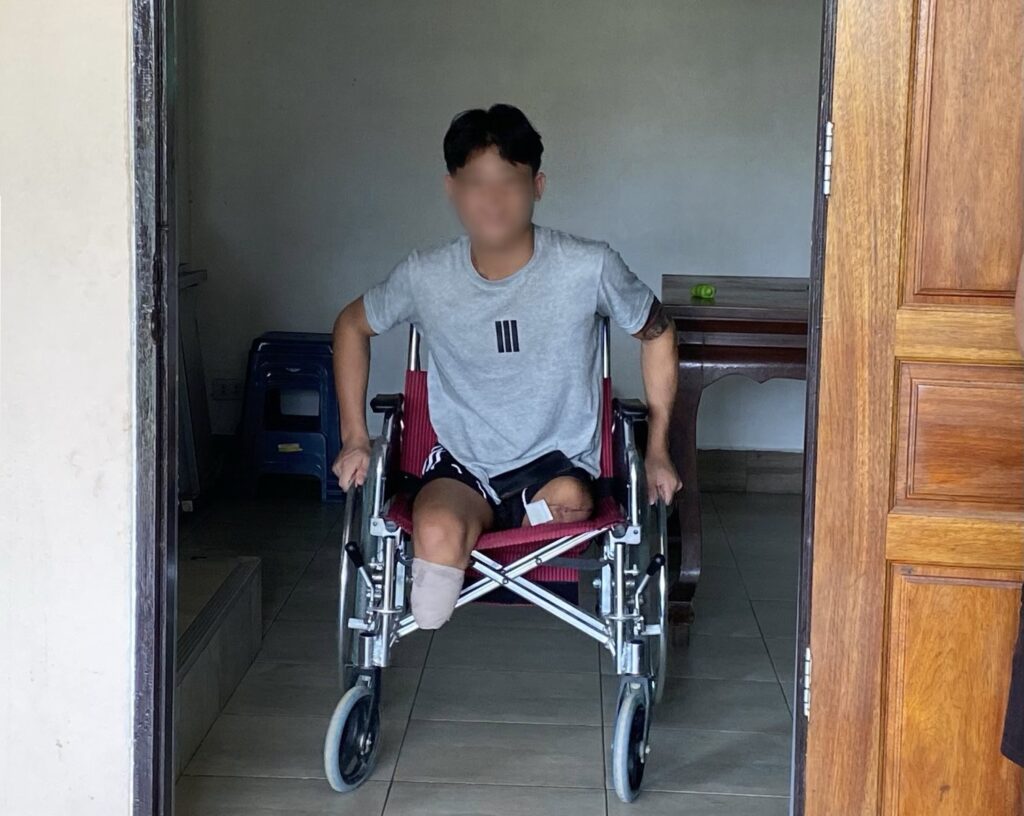
“I am happy here because they provide food and a place to stay. And also the people who stay here are nice to each other. I’m happy to be here,” Loo Eh Say said. “Some of the people here I used to know, and some of the people came here and I just make friend in here.”
Despite all growing up in Karenni State, coming from farming families, and serving with KNDF, these patients met for the first time in this house. “Before I came here, I didn’t know anyone here,” Bah Soe added. “But now, I know everyone. And we are friends.”
While sitting outside on the porch, one of the patients went to pick fruit from the trees in the front yard. Despite the pain he was in, he made a physical effort to bless us with hospitality. As we sat and ate fruit together, each patient was asked what gives him strength to keep going on the days where it feels extremely hard.
“Even though I got pain and injury, we encourage each other,” Loo Eh Say said. “Also, we are friends. Like today, you and teacher come, and visit and talk to us. So, we are happy.”
Most of the patients are covered in various tattoos amongst their casts and wounds. Some of these are promoting freedom, some are names of family members and lost loved ones. They all laughed together as they spotted one tattoo of Taylor Swift’s face on Oasih’s arm. He claimed she was his favorite singer as he recited her lyrics joyfully out loud.
It was obvious how close these patients had become as their beds, made of blankets and mats on the floor, were laid inches apart from one another by choice. It was obvious how strengthened they were by this friendship formed through brokenness.
“We give each other encouragement to get better,” Bah Soe explained. “For the physical and the mental, we give encouragement to each other.”
As we left, we prayed together for physical recovery. And praised God for the gift of friendship that was strengthening mental and spiritual hope and healing in this house.
“Therefore encourage one another and build each other up, just as in fact you are doing,” 1 Thessalonians 5:11.

